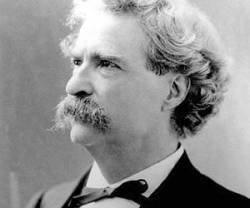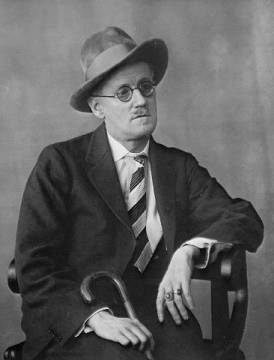On a lighter note, and while we’re on the subject of economic crisis, we offer you an animated (and not so serious) explanation of the financial crisis in Greece. The saga continues with Episode 2.
Thanks Eren, aka @Gulfi
On a lighter note, and while we’re on the subject of economic crisis, we offer you an animated (and not so serious) explanation of the financial crisis in Greece. The saga continues with Episode 2.
Thanks Eren, aka @Gulfi
The news isn’t good. The Euro is losing value daily. Countries are slipping into “sovereign debt crises” – meaning they’re going broke. And the markets are swooning once again. We’re watching the proverbial other shoe drop.
Throughout this crisis, many Americans have directed their anger at Wall Street (and deservedly so). But few have wondered whether there’s anything basically wrong with American-style capitalism. And, if anything, the only organized protest movement (The Tea Party) has asserted that we need more capitalism in our lives, not less.
In some rare quarters of academe, capitalism still doesn’t get off so easy. And that brings us to three new online courses taught by the economist Richard D. Wolff at The New School in NYC. Above, we feature the first lecture from Economic Crisis and Globalization, a course that takes a less orthodox view of how we’re managing the Great Recession. (Find the other seven lectures here.) His other courses, both on Marxian economics, appear in our collection of Free Online Courses under Economics.
 223 years ago today, the Constitutional Convention started meeting secretly in Philadelphia. Several months later, the meetings ended with the signing of the US Constitution. Starting today, the National Constitution Center will use Twitter to reenact the events of the Convention. You can follow @SecretDelegate, a mysterious insider, who will show you what happened inside the private proceedings. The “Twitter Convention” will conclude on September 17, when the Constitution was signed, and only then will the true identity of @SecretDelegate be revealed. You can be among the first to follow these tweets.
223 years ago today, the Constitutional Convention started meeting secretly in Philadelphia. Several months later, the meetings ended with the signing of the US Constitution. Starting today, the National Constitution Center will use Twitter to reenact the events of the Convention. You can follow @SecretDelegate, a mysterious insider, who will show you what happened inside the private proceedings. The “Twitter Convention” will conclude on September 17, when the Constitution was signed, and only then will the true identity of @SecretDelegate be revealed. You can be among the first to follow these tweets.
Looking for more Open Culture? Find us on Twitter at @openculture.
If we believe that Homo sapiens (a.k.a. people) and monkeys evolved from a common ancestor, then it makes sense to ask: Can monkeys use language like we do? Do they make mere sounds? Or do they use specific sounds to communicate a range of different intended things? Robert Seyfarth, a professor at the University of Pennsylvania, uses the case of the Vervet Monkeys to answer these questions. You can read more about his work in The New York Times.
Some months ago, we asked you to name your favorite TED Talk. And, more than a few of you flagged Sir Ken Robinson’s presentation from 2006, Do Schools Kill Creativity? You’re in good company. The talk remains one of TED’s most popular videos of all time. Today, TED has released Robinson’s sequel (of sorts). Recorded this past February, Bring on the Learning Revolution! “makes the case for a radical shift from standardized schools to personalized learning — creating conditions where kids’ natural talents can flourish.” Give it some time. Perhaps it’s another talk for the ages.
 File this under “better late than never.” Mark Twain spent his last decade writing his memoirs, producing some 5,000 unedited pages. However, he stipulated that they couldn’t be published for at least a century following his death. (Apropos see this very rare footage recorded by Thomas Edison showing Twain in his last year.) Fast forward to 2010. We have now clocked 100 years. And this November, UC Berkeley will publish the first volume of Twain’s manuscript. The Independent tells you more about this literary event, and suggests why Twain wanted to keep his autobiography under wraps. Get the full article here.
File this under “better late than never.” Mark Twain spent his last decade writing his memoirs, producing some 5,000 unedited pages. However, he stipulated that they couldn’t be published for at least a century following his death. (Apropos see this very rare footage recorded by Thomas Edison showing Twain in his last year.) Fast forward to 2010. We have now clocked 100 years. And this November, UC Berkeley will publish the first volume of Twain’s manuscript. The Independent tells you more about this literary event, and suggests why Twain wanted to keep his autobiography under wraps. Get the full article here.
via @ebertchicago
 You may have heard the news last week: J. Craig Venter and a team of scientists created the first living organism – a “synthetic cell” – by way of a computer-generated genome. We’re now seeing the beginnings of artificial life. And it’s a big story, with many far-reaching implications. But where does James Joyce fit into this picture? Let me add this little factoid to the mix: According to The Christian Science Monitor, Venter’s team inserted DNA watermark codes into the genome so that they can distinguish between natural and synthetic bacteria moving forward. And when this code is translated into English, it will “spell out the names of the 46 researchers who helped with the project, quotations from James Joyce, physicist Richard Feynman and J. Robert Oppenheimer, and a URL that anyone who deciphers the code can e‑mail.” Lots of smarts packed into the tiniest of packages.
You may have heard the news last week: J. Craig Venter and a team of scientists created the first living organism – a “synthetic cell” – by way of a computer-generated genome. We’re now seeing the beginnings of artificial life. And it’s a big story, with many far-reaching implications. But where does James Joyce fit into this picture? Let me add this little factoid to the mix: According to The Christian Science Monitor, Venter’s team inserted DNA watermark codes into the genome so that they can distinguish between natural and synthetic bacteria moving forward. And when this code is translated into English, it will “spell out the names of the 46 researchers who helped with the project, quotations from James Joyce, physicist Richard Feynman and J. Robert Oppenheimer, and a URL that anyone who deciphers the code can e‑mail.” Lots of smarts packed into the tiniest of packages.
UPDATE: The quotes in watermark apparently read: “TO LIVE, TO ERR, TO FALL, TO TRIUMPH, TO RECREATE LIFE OUT OF LIFE.” — James Joyce’s A Portrait of the Artist as a Young Man; “SEE THINGS NOT AS THEY ARE, BUT AS THEY MIGHT BE.”-A quote from an Oppenheimer biography, American Prometheus; “WHAT I CANNOT BUILD, I CANNOT UNDERSTAND.” — Richard Feynman.
Speaking in New York City, David Simon, the creator of The Wire, wasn’t shy about taking the city to task. “There is no city more vain about its position in popular culture, more indifferent to other realities, more self absorbed than other cities.” “Manhattan is [now] one big pile of money,” which leaves it divorced from the real problems facing other American cities. So why are so many stories and television shows still centered in New York, and how can they tell the real tale of urban America in 2010?
This talk took place at The New School for Liberal Arts in NYC.
via The Daily Dish